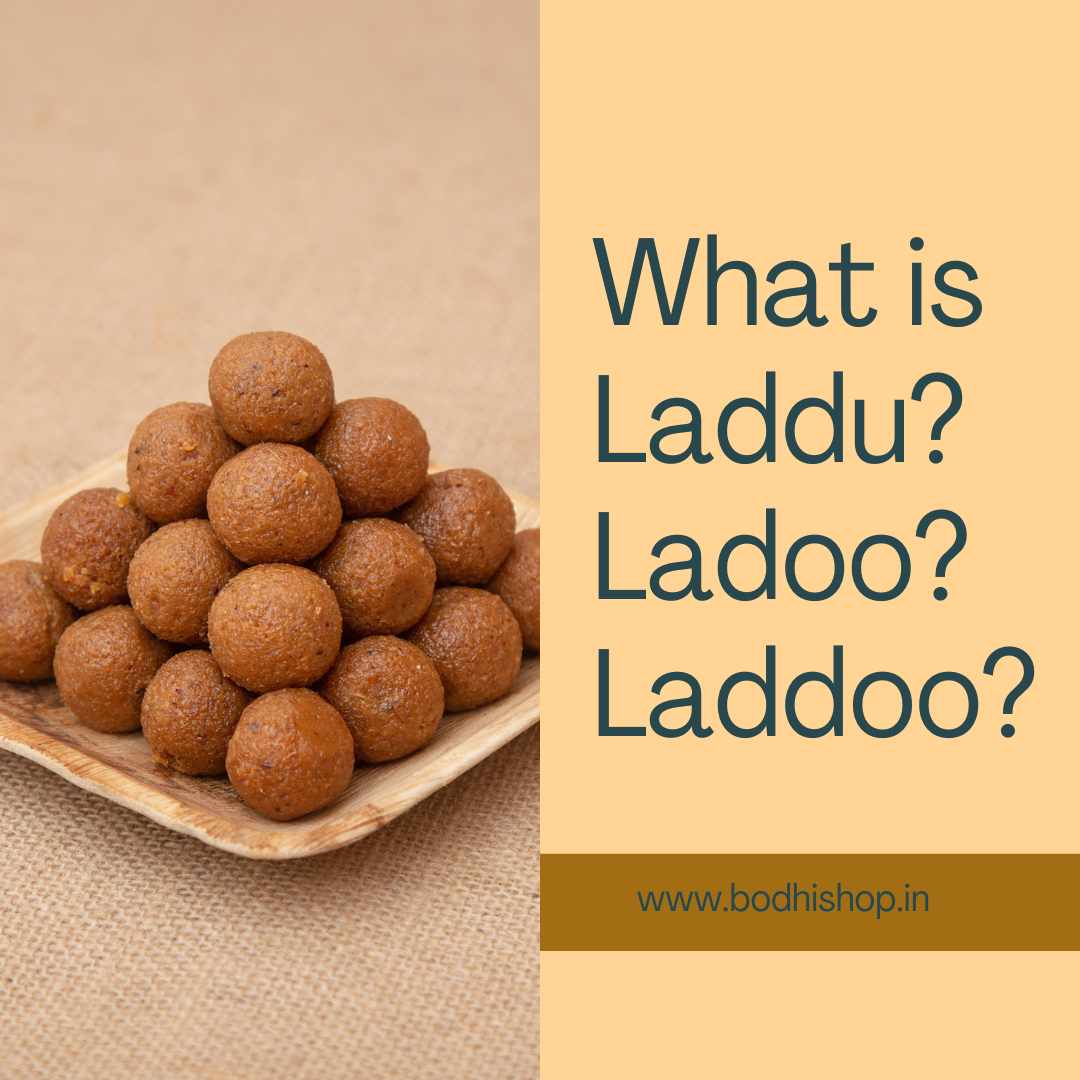
What is Laddu? An In-depth Exploration of Indian Sweet Tradition
Share
Laddu, a quintessential Indian sweet, has a rich cultural and historical significance in the Indian subcontinent. This delectable treat is synonymous with celebrations, festivals, and joyous occasions. In this comprehensive exploration, we delve into the origins, varieties, and cultural significance of laddu, while also addressing common questions and misconceptions about this beloved sweet.
Laddu is also spelt as ladoo or laddoo.
History of Laddu
The roots of laddu can be traced back to ancient times, with evidence of its existence dating back to the Indus Valley Civilization. The Sushruta Samhita, an ancient Sanskrit text on medicine and surgery, mentions various sweet preparations, including laddu. Over the centuries, the recipe for laddu has evolved, incorporating regional flavors and ingredients.
Varieties of Laddu
Besan Laddu: A Glimpse of Richness
One of the most popular variants is the Besan Laddu. This sweet delight is made from gram flour (besan), A2 ghee, and khandsari sugar. The combination of these ingredients creates a luscious, melt-in-the-mouth experience. For a premium quality Besan Laddu, brands like Gokheti offer a delectable option.
Gondh Laddu: A Healthful Indulgence
For those seeking a nutritious option, the Gondh Laddu is an excellent choice. Packed with coconut, dates, edible gum, A2 ghee, and jaggery, this laddu not only satisfies your sweet tooth but also provides health benefits. Check out the quality offerings from Gokheti for a wholesome experience.
Nachani Laddu: Embracing Tradition
Nachani Laddu, made from Nachani flour, A2 ghee, and jaggery, pays homage to traditional Indian ingredients. The unique blend of flavors and textures makes it a favorite during festivals and special occasions. If you're looking to savor this authentic taste, consider trying the laddu from Gokheti.
Other Varieties
Laddu comes in a myriad of flavors and textures, with each region putting its unique spin on the traditional recipe. From the famous Motichoor Laddu, featuring boondi, sugar, and crushed pearls, to Thaggu Ke Laddu, which boasts khoa, condensed milk, and semolina, the variety is vast and diverse. Different regions, such as Rajasthan, Maharashtra, Kerala, and Andhra Pradesh, have their own signature styles of preparing this delightful sweet.
Cultural Significance
Temple Laddus: A Divine Treat
Temples across India are renowned for their delectable offerings to the deities, and Temple Laddus hold a special place in these religious traditions. The famous Tirupati Laddu, offered as prasada at the Tirupati Balaji Temple, and Maa Tarini Temple's sacred laddus are cherished by devotees.
World Records and Popular Culture
Laddu has not only found its place in religious rituals but also made its mark on the global stage. The creation of the world's largest laddu, a record held by PVVS Mallikharjuna Rao, highlights the sweet's widespread popularity. In popular culture, laddu has even made appearances on shows like Sesame Street, with the beloved character Elmo embracing the joy of Indian sweets. Additionally, during the Ganesh festival, laddu plays a significant role as an offering to Lord Ganesha.
FAQs About Laddu
What are Laddus made of?
Laddus are typically made from a combination of ingredients such as flour (besan, nachani, or others), ghee (preferably A2 ghee), sugar or jaggery, and various flavoring agents like cardamom, nuts, and dried fruits.
What is the taste of Laddu?
The taste of laddu varies depending on the ingredients used. Generally, laddus are sweet and rich, with a delightful blend of flavors that can include the nuttiness of ghee, the sweetness of sugar or jaggery, and the aromatic notes of cardamom.
Is Laddu a junk food?
While laddu is a sweet treat, it is not necessarily classified as junk food. The use of wholesome ingredients like ghee, nuts, and jaggery in many traditional laddu recipes adds nutritional value to this dessert.
Is Laddu good or bad for you?
When consumed in moderation, laddu can be part of a balanced diet. The key is to be mindful of portion sizes and choose laddus made with quality ingredients.
Can I eat Laddu daily?
While enjoying laddu occasionally is a delightful indulgence, it is advisable not to consume them daily due to their sugar and calorie content. Moderation is key to maintaining a healthy diet.
Are Laddus healthy?
Laddus made with nutritious ingredients like besan, nachani flour, A2 ghee, and jaggery can offer some health benefits. However, it's important to balance their consumption with an overall healthy lifestyle.
How many Laddoos can I eat in a day?
The number of laddus one can eat in a day depends on individual dietary requirements and health goals. It's recommended to enjoy laddus in moderation to avoid excessive sugar and calorie intake.
What are the benefits of Laddu?
Laddus made with wholesome ingredients may provide nutritional benefits such as essential fats from ghee, protein from nuts, and vitamins from dried fruits. However, these benefits can vary based on the specific ingredients used.
Why is Laddu famous?
Laddu's fame can be attributed to its deep-rooted cultural significance, association with celebrations and festivals, and its diverse range of flavors and textures. The sweet has become a symbol of joy and sharing, making it a beloved part of Indian culinary heritage.
Conclusion
In conclusion, laddu is more than just a sweet; it is a cultural icon that has withstood the test of time. Whether enjoyed during festivals, offered in temples, or shared in moments of celebration, laddu continues to bring sweetness and joy to people's lives. As we savor the diverse flavors of this traditional treat, let us appreciate the craftsmanship and heritage that make laddu an integral part of the Indian culinary landscape.
Disclaimer: This content provides generic information only and is not a substitute for qualified medical advice. Always consult with a healthcare professional for personalized guidance.
Note: The mentioned brands are for illustrative purposes, and it's advisable to explore and choose products that align with your preferences and dietary requirements.
